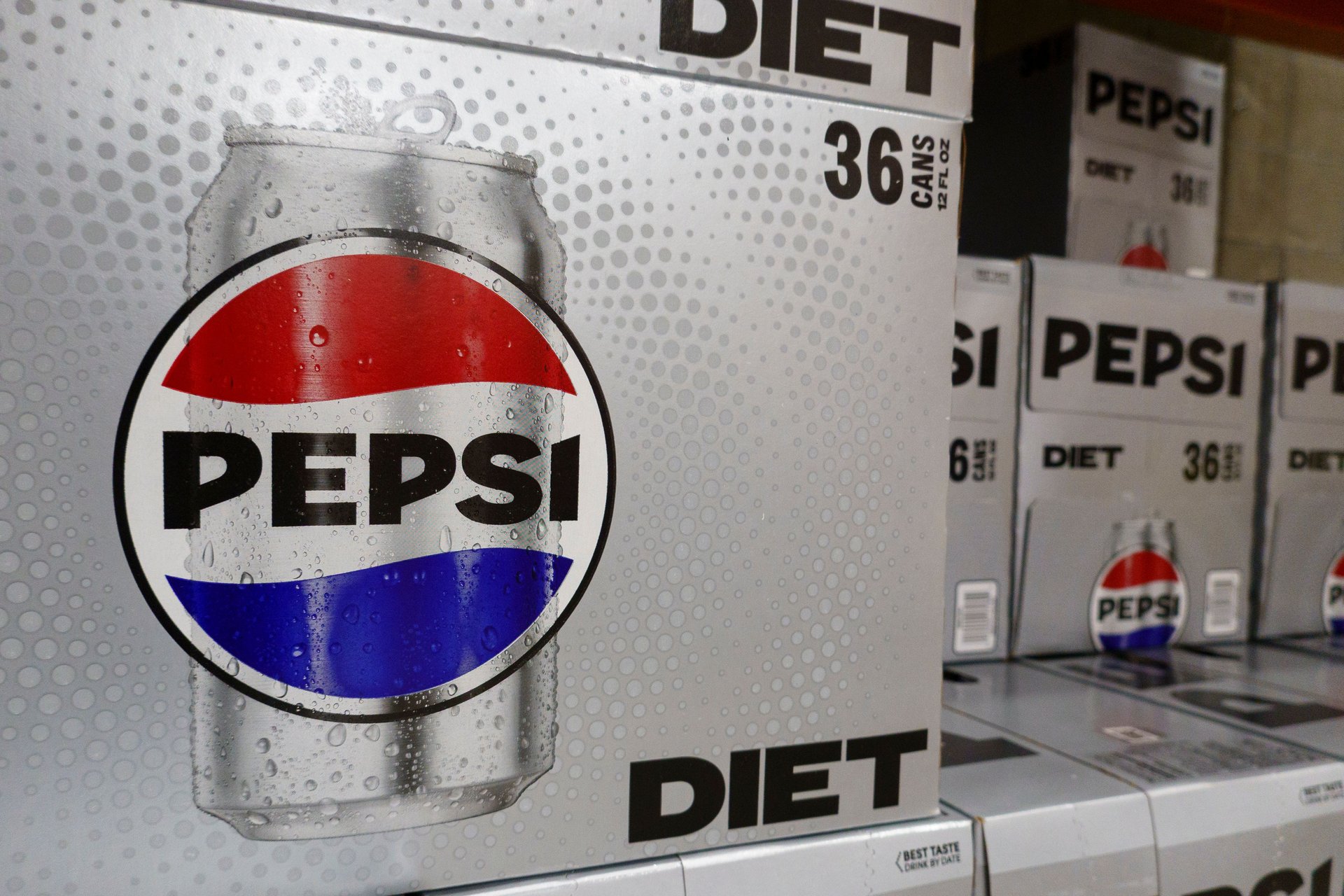PepsiCo earnings beat Wall Street expectations even as business in the U.S. falters
PepsiCo reported surprise second-quarter earnings per share of $2.12 on a $22.73 billion revenue, beating analysts' expectations

Kevin Carter/Getty Images
PepsiCo beat expectations in its second-quarter earnings, surprising Wall Street by reporting $2.12 earnings per share on a $22.73 billion revenue, with a 2.1% organic revenue performance before the bell Thursday morning — despite declining demand for its North American food and beverage products. The stock popped close to 6% shortly after the market opened.
Suggested Reading
Analysts polled by FactSet expected Pepsi to report $2.03 in earnings per share, dropping 11% from one year ago, Barron’s reported. The Zacks Consensus Estimate expected Pepsi’s revenue to come in at $22.4 billion.
Related Content
The company reported a second-quarter net income attributable to Pepsi of $1.26 billion. This time last year, Pepsi reported a net income of $3.08 billion, a roughly 59% year-over-year decline. The company’s beat came despite a nearly $1.9 billion impairment charge, primarily tied to underperforming assets such as Rockstar Energy and its China-based Be & Cheery brand.
PepsiCo owns beverage, snack, and food brands such as Quaker, Fritos, Lay’s, Mountain Dew, Doritos, Bubly, Cheetos, and Gatorade.
Pepsi’s North American food and beverage business saw minimal growth this quarter; its beverages business’ organic revenue only grew 1%. To invigorate this sector, Pepsi said it will, in part, prioritize “zero sugar, functional hydration, [and] sports nutrition.” Its food sector also saw little growth, leading the snack company to say it will focus on “affordability,” “bold flavor profiles,” and “portion control” in its food business. The company said Sun Chips saw net revenue growth in the double digits this quarter, and Pepsi said it expects the snack to “deliver high-single-digit net revenue growth in 2025 and exceed $700 million in net revenue.”
Under the company’s “One North America Initiatives,” Pepsi said it plans to continue to find “synergies” between its food and beverage sectors to “reduce duplication, adopt harmonized best practices, and integrate and consolidate administrative and support functions.”
The company’s international business performed better compared with its North American counterparts, experiencing 6% organic revenue growth.
“As we look ahead, we will continue to build upon the successful expansion and growth of our International business and accelerate initiatives to improve our North America business performance,” PepsiCo CEO Ramon Laguarta said in a release. “These initiatives include more portfolio innovation and cost optimization activities that aim to stimulate growth and profitability. As a result, for fiscal 2025, we remain confident in our ability to deliver low-single-digit organic revenue growth with core constant currency EPS to be approximately even with the prior year.”
One such initiative is leaning into the company’s healthier brands — such as by enhancing “certain products with protein, fiber and whole grains,” the company said in a release. “Consumers are adopting protein solutions in their diets at a pace that was not the case in a few years back,” PepsiCo Chairman and CEO Ramon Laguarta said on a post-release earnings call. “We can provide democratized solutions at large scale. That’s what we’re trying to do.”
It’s been a rough few quarters for Pepsi — revenue has fallen on a year-over-year basis — which has battled changes in consumer health trends and inflation, but the stock price jump could signal newfound interest in the company’s plans.
Macro impacts on Pepsi’s success
Pepsi owns brands both in the beverage and food spheres, which lends more opportunity to the company to diversify its profits based on consumer spending trends. But as President Donald Trump intensifies his trade war with countries around the world and inflation rates rise even higher, consumers are tightening their budgets.
These macroeconomic concerns, coupled with Health Secretary Robert F. Kennedy Jr.’s crusade against food additives, leave Pepsi in a tricky spot. The soda company has diversified its beverage options lately — including its May acquisition of the prebiotic soda Poppi — to align with customers “modern wellness priorities,” a release said. Plus, the president’s recently passed “Big Beautiful Bill” also takes away deductions for office snacks starting in 2026, which could make a dent in the company’s sales.
In April, PepsiCo revised its full-year earnings forecast downward due to mounting tariff pressures and weakened consumer demand. The company maintained that outlook on Thursday. Looking forward to the third quarter, Pepsi said it expects high supply chain costs from Trump’s tariffs but said it plans to try and mitigate some of these costs. Those comments echo what the company said in the first quarter, when Pepsi said it expected a more “volatile” and “uncertain” economic environment due to changes in global trade.
Comparisons with Q1
Pepsi reported 1.2% organic revenue growth, $1.48 earnings per share, and a revenue of $17.92 billion during its first-quarter earnings report. The company reported “improved” revenue trends for its North American beverage business and said its Quaker products saw “strong improvement” following its recall over a potential Salmonella contamination last year.
How competitors are faring
Constellation Brands, the parent company of Modelo beer in the U.S., lowered its profit outlook for the year and notched a drop in net sales in the latest quarter as customers hesitated to spend and continued to be wary about the economy — and there could be a similar outcome for Pepsi beverage products.
Barron’s reported that, since May, Pepsi's biggest rival, Coca-Cola, has seen its shares rise 10%, in comparison with a 26% drop for Pepsi. Coca-Cola’s second-quarter earnings will come out on July 22.
- Allison Prang contributed to this article.
